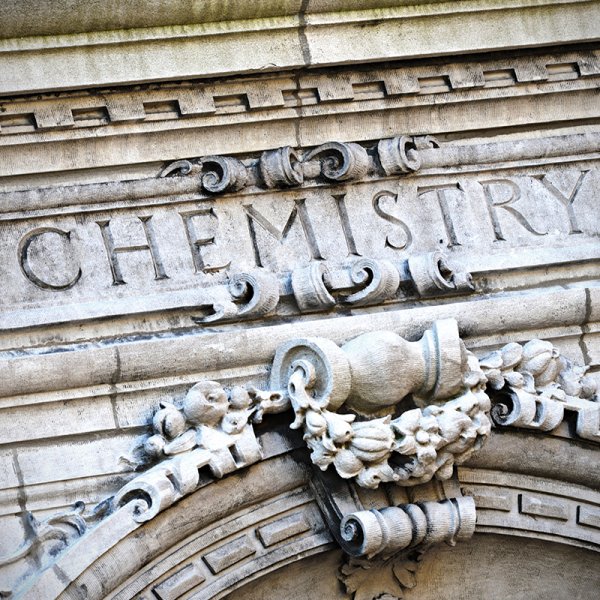Chemistry Minor
As a chemistry minor, you’ll study the structure and constitution of the microscopic world of atoms and molecules, the chemical and physical transformations that occur in it, and the principles that govern these changes.
sample courses:
This course is an introduction to the atomic nucleus, radioactivity and the interaction of radiation with matter. Basic models for nuclear stability and structure are presented. All nuclear decay modes are thoroughly discussed as are how all forms of ionizing radiation interact with matter. Selected applications in biology, chemistry, physics, earth science, and medicine are discussed. Some of the technical issues and problems with nuclear power and nuclear waste are also presented.
Lectures will cover the background, practice and applications of computational chemistry to the modeling of the structures and chemical reactions of organic molecules. Different levels of calculation will be presented, from molecular mechanics calculations and Hhckel molecular orbital theory, through semi-empirical and ab initio self-consistent field calculations with correlation energy corrections, and density functional theory. Hands-on experience performing calculations is an important element in this course.
